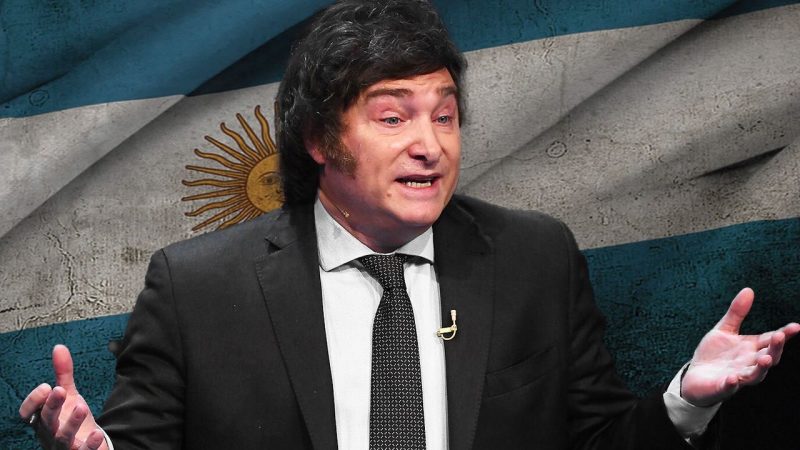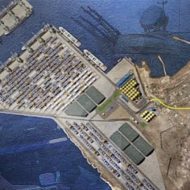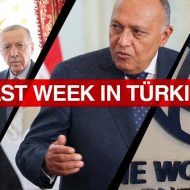Trying to understand what is happening, I spoke with several Argentine friends. I spoke with journalists, union leaders, small businessmen, academics, Peronist and leftist activists, and state officials. Below, I summarize some of the ideas that were presented to me and that I hope will contribute to thinking about what could happen in the immediate future.
In the current condition, Milei desperately tries to show strength and hide his political and institutional weakness at a time when he is measuring forces in parliament and in justice. Among the around a thousand laws that have been proposed to be eliminated or modified, some will be approved but the majority rejected. The scenario of the future has been marked by the recent national strike and mobilization that defined a before and after of this government.
From now on, a period of strong confrontation will begin, not necessarily violent because there are no forces to sustain it. The government intends to take 2,000 troops to the streets to repress, but there is no unified opinion in the armed forces about the attitude to take. In any case, the social climate is going to become complicated in the coming months with a high level of conflict. December’s inflation was 25%, around 20% is expected for the month that is ending. Milei is making every effort to stop inflation, because he knows that his ability to control it or not will determine his future.
An important question is to know who in the opposition will capitalize on this crisis after Cristina Kirchner disappeared from the political map. The most prominent figures are Axel Kicillof, governor of the province of Buenos Aires, the social and political leader Juan Grabois and the union leader Pablo Moyano who leads the powerful truck driver’s union.
It is known that the prolongation of the crisis will radicalize the most advanced sectors of society in a situation of reserved prognosis because Argentine history is full of violent mobilizations that have overthrown presidents. Likewise, the crisis could allow the reorganization and regrouping of Peronism now under new leadership such as that of the three aforementioned characters.
There are four hypotheses of what could happen in Argentina in the near future:
- The first is the least likely, although it could occur if a leader of the traditional right allied to Milei (such as Mauricio Macri or the former Peronist leader Miguel Ángel Pichetto) manages to penetrate the president’s closest circle or convince him of the need for dialogue. This scenario is likely because the allies have taken note of Milei’s “suicidal” action and intend to save some part of the proposed legislation, particularly that related to fiscal stability, to leave everything else to the parliamentarians. Thus, they could “save” the president from a probable overwhelmingly contrary vote in Congress. It is worth saying that one of his most important allies (the Radical party) is against the privatization of public companies, with sectors that have even begun to abandon the president, showing that the power bloc is not united.
This scenario seems less likely, because at this point Milei persists in an extremely harsh discourse that plays all or nothing even though surveys show that his social base is shrinking.
- The second is that once the massiveness and strength of the national strike on January 24 was demonstrated (in which around 1.5 million citizens participated throughout the country, making it one of the largest in history) undecided sectors, many of whom voted for Milei and today regret it, join the large opposition contingent that grows day by day.
It is expected that at the end of February (in which joint negotiations will be held between employers and workers) there will be a second devaluation, which will bring together a gigantic opposition front leading to Milei’s resignation. The school year begins in March and families will be forced to make the necessary purchases, receiving the impact of price increases.
Sensing this situation, former President Macri has already spoken with Vice President Victoria Villarruel so that she is prepared to assume the presidency. If this hypothesis were to occur, in reality a disguised coup d’état would be taking place, which in practice would lead to an even worse situation, because Villarruel is located to the right of Milei, which, although difficult to understand, is a reality in Argentina today.
In strategic terms, this would mean the acceleration of political times in the face of a violent confrontation when an illegitimate government is installed that has no chance of being accepted.
The only thing that could prevent a radicalization of the conflict is that with the help of the IMF, Milei’s proposal is consolidated in the short term, can stop inflation and gain credibility. All their efforts point to there. The IMF has already granted him 4.7 billion dollars, but it is money that will not even enter the national coffers, since it will have to be used to pay debts. This is the reason why Milei traveled to Davos in search of support, but his speech, although well received in the business world, was overwhelmingly rejected by government entities.
- The third option is that, given Milei’s closure, there will be an accelerated deterioration of his image and loss of popular support, leading to the parliamentary blocs agreeing on a radical legislative measure that forces the resignation of Milei and Villarruel in order to convene a Legislative Assembly to appoint an interim president while new elections are called in a short period of time. This is a constitutional figure that was put into practice in 2001.
- The fourth option, although very unlikely, is still an existing scenario in the complex situation of the country. Given the deep crisis that Argentina is immersed in and considering the dynamics that the president is injecting into the political and economic context, and that has prevented the consolidation of a real power bloc, some parties in the alliance are beginning to abandon it. In that case Milei could try to “fall on his feet” saying that he had sought a change and had not achieved it, so he could try a Fujimori-style exit in Peru in 1992 by dissolving Congress and assuming all the powers of the State.
In this situation, an actor that cannot be ignored is the United States. Washington is doing its best to control the armed and security forces. Milei, in a decision that was imposed on him, retired 23 army generals. In Argentina there is a practice that when appointing the head of one of the types of armed forces, all those above him in seniority must retire. Milei made new appointments without knowing what would happen because no one explained it to him. Here, his ignorance and inexperience in the management of state affairs became evident.
Another practice is that the three types of armed forces (army, navy and aviation) rotate the leadership of the General Staff of the Armed Forces. Now it was up to the navy, but Milei appointed an aviation general, altering the agreed and accepted order. All of this has happened because the United States embassy has pulled the strings to make it happen. They know that Milei may be transitory and cling to the more permanent power of the military.
The appointment of an aviation general is due to the fact that it is the force closest to the United States and very soon the acquisition of fighter planes that Washington intends to sell must be negotiated, although there are sectors that are closer to accepting an offer from Denmark.
The Armed Forces are divided in their support for Milei. There are corporate groups, sects and families – all united around corruption that provides large resources for the acquisition of weapons. The United States embassy is acting based on this mechanism.
On the political level, the embassy remains around the government, although officially it has had no interference either in the assembly or in the appointments of officials. This is due to Milei’s distance from Biden and his closeness to Trump. On the other hand, not even the United States has managed to penetrate Milei’s closest circle, which is very closed, very pro-American, but very close to Trump and especially to his former advisor Steve Bannon, which is why the White House is suspicious of him and “scared” of what could happen.
But interestingly, Trump has kept his distance from Milei. It caused him a lot of discomfort that during his visit to the United States, – in a meeting arranged by the Zionist lobby – he met and was photographed with former President Bill Clinton. In this context, and beyond the rhetoric, the Biden administration, fearful of being involved in the strong political erosion of Milei, has chosen to give it its support through the IMF.
On another level, it is to be expected that relations with China “will remain frozen”, that is, they will not be broken, but they will not advance. After having received the representative of Taiwan in a reckless act typical of her ignorance, Foreign Minister Mondino was forced to receive the Chinese ambassador, to give explanations and reiterate Argentina’s support for the “one China” policy. This occurred due to pressure from businessmen, who reacted with true “hysteria” in the face of what they called the government’s massive clumsiness.
They have taken note that Chinese purchases of soybeans from Brazil have increased to the detriment of Argentina, the same thing that has happened with meat in relation to Uruguay. Businessmen fear that the Chinese market will be closed to them and are exerting strong pressure so that Milei’s announced measures against Beijing are not implemented in favor of the “national good”, that is, for their own good.









Leave a Reply